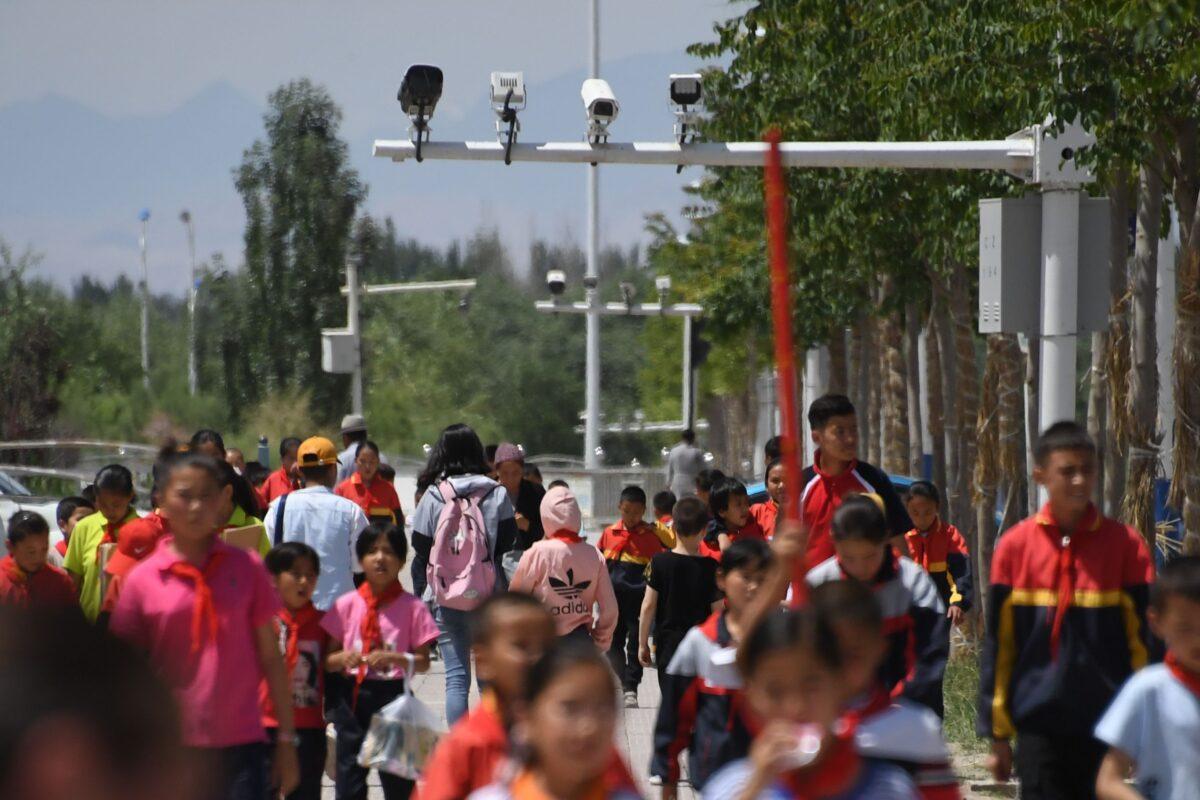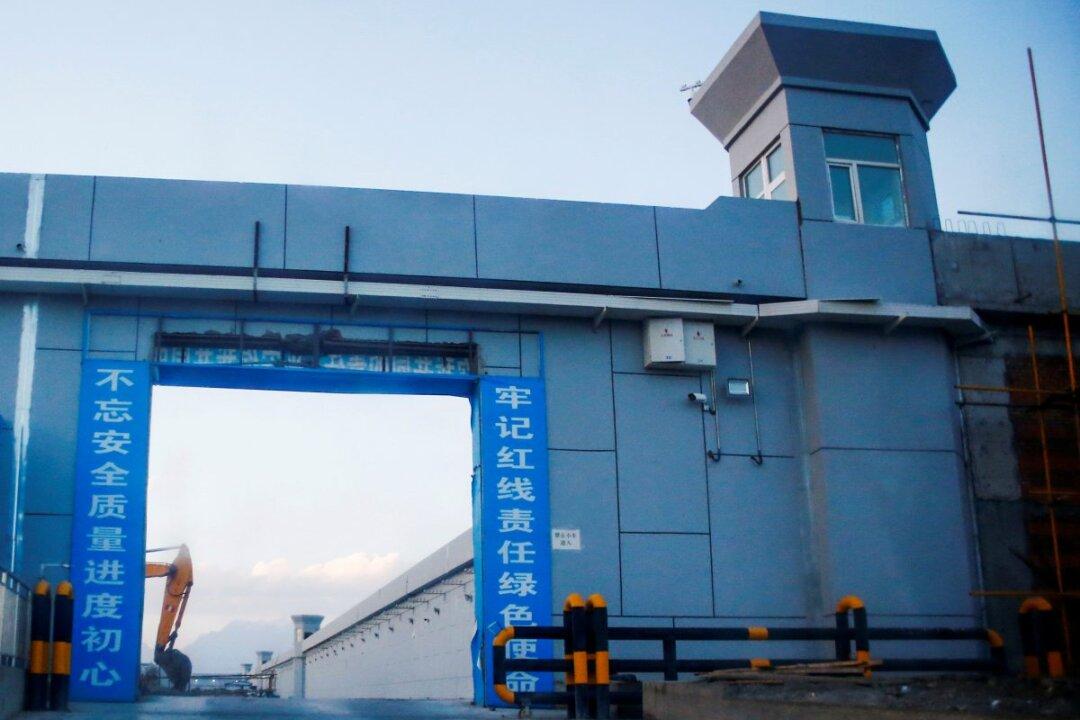The Chinese regime’s aggressive rollout of new technologies to step up its repression of Uyghurs in western China calls for new responses on the part of allied nations outraged at the human rights abuses, said panelists at a recent virtual event hosted by The Brookings Institution think tank.
Laura Rosenberger, senior director for China and Taiwan in the White House National Security Council, who visited Xinjiang in 2010, said in her introductory remarks at the Feb. 24 event that the ongoing genocide and crimes against humanity in Xinjiang cannot be ignored and must face serious consequences, and called grappling with this crisis a priority of the Biden administration.
“I’ve seen the extraordinary resilience of the Uyghur community in the face of repression,” Rosenberger said before going on to enumerate a number of steps that the administration has taken.
“President Biden has made clear that human rights and democracy are at the core of this administration’s foreign policy. Specifically in Xinjiang, we’re working to raise the econ and reputational costs of the PRC’s actions, to hold the PRC accountable and to go after its modern arsenal of repression,” she said, referring to the People’s Republic of China.
Rosenberger said the goal is to put “sustained pressure” on the CCP to end its abusive practices.
The administration has put to use an array of diplomatic and economic tools including sanctions, investment restrictions, export controls, and visa bans on CCP officials and entities, in addition to throwing its support behind the strong statements against the Uyghur genocide made recently by allies such as France.
New measures, they said, are needed to convey to the Chinese Communist Party (CCP) that such persecution is unacceptable and to ensure global supply chains do not play into the CCP’s hands by rewarding firms complicit in the abuses.

The Scale of the Repression
Jewehr Ilham, an activist, writer, and project coordinator at the Worker Rights Consortium, described the Chinese regime’s mass persecution of the Uyghurs as having gone on for more than a decade under the official pretext of countering terrorism, combating religious extremism, and providing vocational training and work to poor people in western China.“One of the major abuses is systematic forced labor on a massive scale targeting not only the Uyghur population but also the other Turkic and majority-Muslin peoples on the basis of religion and ethnicity,” Ilham said. “There’s a substantive body of evidence that the Chinese government is subjecting these peoples to state-imposed labor as part of its program of so-called poverty alleviation and vocational training.”
Ilham said that at this time, between a million and 1.8 million members of the Uyghur and other Turkic peoples are subject to mass detention in internment camps, the forced sterilization of women, the separation of families, and torture, and the programs of surveillance play a critical role in all the above.
As a member of a family from Xinjiang, Ilham said she has direct personal experience of the reality faced by many in the region. Her father is serving a life sentence for public statements he made criticizing the CCP, and her cousin was arrested at a checkpoint on the street and forced to hand over her cell phone, on which the police found an article critical of the regime and a photo of her father, resulting in a ten-year prison sentence. Ilham said she has not seen any members of her family in person since 2017.
Ilham noted a few positive recent developments such as a reported reduction of the number of students in so-called vocational schools in Xinjiang, and the passage of the Uyghur Forced Labor Prevention Act, which she said gives cause for hope of more action on this issue in the near future. But much more needs to be done, especially in light of the growing technological savvy put to use in the campaign of repression and genocide, she said.

The Role of Technology
Digital surveillance of Uyghurs and other minorities in western China is not a totally new phenomenon, but has been increasingly common. Jessica Brandt, policy director at Brooking’s Artificial Intelligence and Emerging Technology Initiative, described a mobile hacking operation that commenced in 2013.“Hackers connected to the Chinese government conducted a broad campaign to target the cell phones of Uyghur individuals, and they began using novel techniques like hiding malware in special keyboards used by the Uyghur population or embedding the malware in apps hosting Uyghur language news,” Brandt said.
Having installed such components, officials were able to turn on a phone’s microphone remotely in order to record conversations, export photos, and obtain the locations and chat records of phones, according to Brandt. Launched in 2013, this methodology of repression has grown more widespread and sophisticated.
Today, the regime collects biometric data of Xinjiang residents through obtaining blood samples, voice prints, and iris scans, and uses DNA samples to generate face maps, Brandt said. She described growing concerns that Chinese officials will be able to feed the images generated through such new technologies into their facial recognition systems, giving them an enhanced ability to identify Uyghurs and to monitor and control the moves, actions, and words of members of this minority.
The West’s Response
In response, the United States has imposed trade and sometimes investment bans on a spate of Chinese AI and tech companies that aid Beijing’s surveillance of Uyghurs in Xinjiang.But the panelists stressed that such measures do not go far enough, and are inadequate to counter the flow and implementation of technology used to persecute Uyghurs.
Brandt pointed out that artificial intelligence firm SenseTime, the largest facial recognition startup in China which has been on a U.S. trade blacklist since October 2019, recently debuted on the Hong Kong stock market without much trouble from those who might object to how CCP officials make use of its technology.
In fact, Brandt noted, the company even assured investors in its IPO prospectus that it faced no material consequences from its December addition onto a U.S. investment ban list. This delayed the IPO for only a few days, and the company went on to draw half a billion dollars from non-U.S. investors, Brandt said. Some firms have supply chains that are simply not dependent on U.S. exports.
Even with the passage of the Uyghur Forced Labor Prevention Act, only nine brands have come forward to announce that they are shifting manufacturing facilities from Xinjiang to other locations, and the nine firms in question do not have much staff or large sales in China, said Cathy Feingold, director of the international department at the AFL-CIO. Moreover, firms such as Nike and H&M have faced severe blowback in China when they dared to take a stand the use against forced labor in Xinjiang.
“No more PR, no more empty pledges. We need a plan and we need some new tools,” said Feingold.
Some panelists called for the criminalizing of behavior that facilitates repression that is currently not subject to any severe legal sanctions. This could mean taking the kind of approach instituted in response to genocides elsewhere in the world in modern times.
Feingold called for fines under the Tariff Act and sanctions under the Trafficking Victims and Protection Act for companies that abet repression and genocide. “We need to be serious about having real consequences for violating the law. What we need are tools that will create real guardrails,” Feingold said.
“We would like to see a very aggressive strategy, a push for actual legal accountability,” said Sophie Richardson, China director at advocacy group Human Rights Watch.
“I want to make a distinction between the [economic] costs imposed, and actually holding Chinese government officials credibly alleged to have committed crimes against humanity legally responsible. This is what the world does in response to atrocity crimes,” Richardson said.





